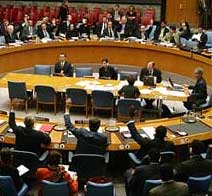Published: 2008
Locked up, hungry and confused, the two young men from the Molboc Tribe were finally released. They do not regret what they did. They will likely do it again if they have a chance to do so… just to put food on the table, as how their ancestors, as native fisherfolk in Balabac, Palawan, had done before.
For over two decades, members of the Molboc tribe, as well as local communities in the southern Palawan of town of Balabac, have had to endure harassment and ill-treatment from the security forces of a pearl farm corporation, which was prohibiting them, unjustly, and without any legal basis, from fishing in their traditional fishing grounds.
Calls for the local government unit (LGU) to mediate and facilitate a system for the peaceful co-existence of the pearl farm and the fisherfolks were ignored. Instead, in early 2005, the Municipality of Balabac enacted an ordinance declaring the entire municipal waters as a “Protected Eco-Region”, where fishing activities are prohibited but pearl farming is allowed.
The Ordinance came to pass notwithstanding the constitutional mandate of substantive and procedural due process, and the various legal provisions of guaranteeing citizen’s right to informed and meaningful participation in the formulation of policies concerning the management and conservation of their community’s natural resources.
In 2005, TAI – Philippines conducted a case study following the TAI Methodology that focused on (a) public access to information on the grounds for the Subject Policy, and (b) the opportunities for participation extended to the public in the enactment of the Subject Municipal Ordinance. Primarily, the actions of two government agencies – the LGU of Balabac and the Sangguniang Panlalawigan (Provincial Board) of Palawan, which reviewed and approved the Subject Municipal Ordinance – were evaluated. A total of 43 indicators (20 for access to information and 23 for opportunities for participation) were examined.
TAI – Philippines also conducted a re-assessment of the case focusing on access to justice as one of the pilot case using the Poverty Tool Kit. It was written from the point of view of the poor groups, small fishers and indigenous peoples in the Balabac case.
The importance of access to information and opportunities for participation cannot be overemphasized in this case. Given the affected communities’ history of disenfranchisement and repression, any environmental measure that would have the effect of depriving them of their traditional fishing grounds, or restricting their use of the same, requires intensive social preparation.
Widespread information dissemination and extensive community consultations must be undertaken not only to ensure that the proposed policy will be understood and well received by the individuals and communities affected, but also to make sure that substantive rights are not run over rough shod, and equity in access is ensured.
In this case, not only did the Municipality of Balabac fail to observe the foregoing processes, it also adopted a policy, purportedly for environmental protection purposes, that goes against international principles, Philippine statutory provision and established coastal resource management practices (i.e., it allowed pearl farming in a core or strict protection zone). The confluence of these circumstances has given rise to a public perception, whether rightly or wrongly, that the Subject Policy was adopted solely to accommodate Jewelmer’s Co. (the pearl farm) interests and to legitimize the prohibition that it has, for many years, foisted upon the affected communities without the sanction of law.
As things stand, it appears that the court case is the affected communities’ last remaining legal remedy. However, given the existing realities, resort to judicial action has not proven to be a speedy and adequate remedy. To date, the case remains pending, almost one year since its inception, and the Affected Communities continue to languish in poverty as they await its resolution.
It may be concluded that this predicament can be attributed to two main factors, namely: (a) gaps in existing laws; and (b) the failure of political will, the lack of a deep-seated orientation on, and capacity to implement, principles on access to information and opportunities for participation, on the part of the concerned government agencies.
It is hoped that policy reforms, enforcement actions and capability building measures, if implemented, will not only provide the affected communities with means for immediate relief, but will also prevent other IPs and fishing communities from being placed in a predicament similar to theirs, and render the processes involved less susceptible to manipulation to favor vested interests.
TAI – Philippines Case Study Writer: Atty. Jose Florante Pamfilo
See: TAI – Philippines Poverty Case Report
TAI – Philippines Case Study attached.



